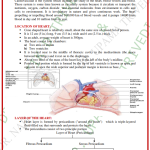Basal Metabolic Rate (BMR) is the amount of energy (measured in calories) that an individual’s body needs to support basic physiological functions such as breathing, circulation, and maintaining a constant body temperature while at rest. BMR is the minimum amount of energy required by the body to carry out these essential functions, and it varies from person to person based on age, sex, body size, body composition, and other factors.
The factors that affect BMR include:
1. Age: The BMR decreases as age increases due to the reduction in muscle mass and an increase in body fat.
2. Sex: Men generally have a higher BMR than women due to having more muscle mass.
3. Body size and composition: The more muscle a person has, the higher their BMR. Similarly, a person with a high percentage of body fat will have a lower BMR.
4. Genetics: Certain genetic factors can also affect a person’s BMR.
5. Hormones: Hormonal imbalances can affect BMR, such as thyroid disorders.
BMR is typically measured in a resting state, after the individual has fasted for 12 hours and has not performed any physical activity. The measurement can be done using indirect calorimetry, which measures the amount of oxygen consumed and carbon dioxide produced during respiration. There are also formulas that can estimate BMR based on age, sex, and body characteristics.
Knowing one’s BMR can be helpful when trying to lose weight or maintain a healthy weight. To lose weight, one must create a calorie deficit by consuming fewer calories than their BMR. Similarly, to maintain a healthy weight, they need to consume the same amount of calories as their BMR. Regular physical activity can also increase BMR, as it helps to build muscle mass and improves overall metabolic function.










